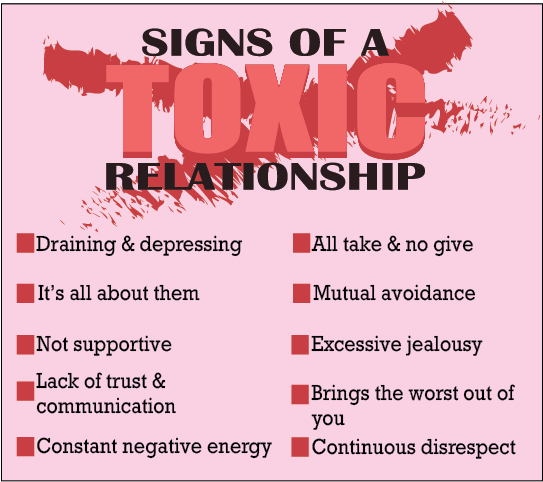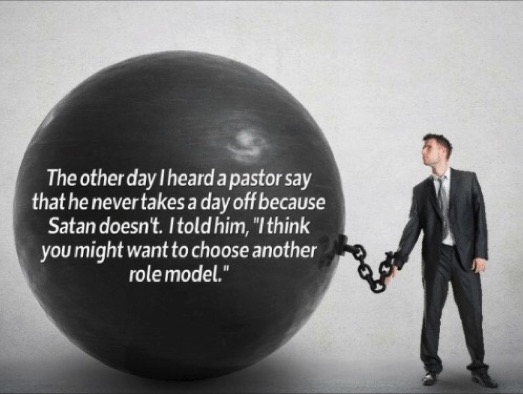pastor
12 Ways to Rekindle Your Passion for Ministry (part 4)
24/08/20 Filed in: Pastor | Church Leadership

This is very much like rekindling ministry passion. The fuel is still there. The need is still there. A low heat is still there. But work needs to be done – attitudes, activities, methods, goals, etc. need to be shifted. In this final part of 12 Ways to Rekindle Your Passion for Ministry, we look at three more concepts that will help stoke up the heat.
10. Refuse Negative Self-Talk.
Earlier this year I started watching a YouTube series done by a young lady who hiked the first part of a long trail here in NZ. While I admired her tenacity in completing the difficult journey, I grew tired of her morning ritual of complaining about what she had gone through the day before and what she would have to endure in the day ahead. Matter-of-fact, I stopped watching her videos about a third into her journey because the counsellor in me wanted to keep interacting with the videos in a non-restful way. I did benefit from her videos though. She gave me a visual demonstration of the reality that even the most enjoyable activities can be spoiled by negative self-talk.“Self-flagellation”. This is a term introduced to me by a counselling mentor as he heard me describe my self-assessment. I wonder how many times we spoil ministry joys through self-flagellation. Yes, “God resists the proud, but gives grace to the humble.” But constant negative self-talk is not necessarily a sign of humility. It actually may be a sign we are ignoring the gifts, skills, and abilities God has given us to do His work. May I suggest an alternative?
“I can’t, but God can through me.”
God has given you the opportunity to join Him in the work He is doing in your community. He has wired you to do the work He wants you to do. He has given you everything you need. Negative self-talk will hide who God has made you to be, so refuse to speak it or listen to it. Live to what God has designed you to be.
11. Repent of soul-crushing sin.
Leading people towards Christlikeness involves leading them away from self-serving sin. Confronting sinful attitudes, actions, and beliefs in your church family requires a great deal of personal fortitude. Some may use that kind of confrontation to justify leaving your church. Some may respond angrily and seek to force you out of the church. Confronting sin in these days is not for the faint of heart. It is doubly difficult if you are hiding the same sin you are confronting.Confidently knowing you are walking with the Lord in close fellowship because there is nothing between you and Him is one of the greatest life-giving elements you can have in ministry! Knowing that - even in the face of all kinds of struggles, trials, misunderstandings, and disappointments – you are in right relationship and walking with the Lord will give you a confidence that cannot be shaken. Is there any soul-crushing sin in your life? Is there anything you are holding onto that keeps you from ministry confidence? Repent of it and rekindle the joy of cleanliness before the Lord.
12. Recount the Gospel.
I know of a pastor who struggled with depression for a bit. One of the activities he found most helpful to him when he was in that emotional darkness was to share the gospel message with someone who needed it. Sharing this life-changing message reminds you of what is really important. Ministry is not about budgets, meetings, schedules, meetings, administration, building maintenance, meetings (did I already say that?). Ministry is about helping people find relationship with God and then helping them grow in that relationship. This is what God has called you to do! If your passion for ministry needs to be rekindled, this where you start. Add gospel fuel to your ministry fire. There is nothing that will rekindle your passion for ministry like watching someone get added to God’s family.So that completes my list of 12 ways to rekindle your ministry passion. Review the list. What are you doing well? What are doing but need to improve on? What do you need to restart right now? Why don’t you pray through this list and ask the Lord to show you what He wants you to see?
- Relax in your own humanity
- Revisit your calling
- Renew your soul
- Reorganise your schedule

- Rediscover your strengths
- Remember God’s promises
- Rehearse the blessings
- Refocus on the future
- Re-evaluate your relationships
- Refuse negative self-talk
- Repent of soul-crushing sin
- Recount the gospel
12 Ways to Rekindle Your Passion for Ministry (part 3)
13/07/20 Filed in: Pastor | Church Leadership
Re: “to do something again”. 
Kindle: “to set something on fire”.
Rekindle: “to set something on fire again”.
This last definition implies that what is being rekindled was once on fire. There once was heat and light coming from it. But the implication also is that the heat and light are dimming, if not gone altogether.
When that happens to your pastoral ministry, what do you do. So far we have looked at six activities that help rekindle your ministry passion. They are found here and here.
Now we move onto three more.
I think that is still a great remedy, especially when pastoral ministry is cold and dreary. Even the most positive optimist is going to struggle in ministry from time to time. It is then that rehearsing your blessings is so vital. You are reminded that God has been good, is good, and certainly will be good. You are reminded that it’s not ALL negative and hard and dreary and cold. There certainly have been positive and easy and bright and warm times as well. Rehearse when you have seen God at work, and let the blessings of that sink into your soul.
One of my heroes that helps me fight that thought tendency is Moses. If you divide his life into thirds, his best years were all at the end! The first and second thirds prepared him for the great task God gave him in the last third. I think an interesting biblical study would be to see who else would fit this model: Ruth, Samson, Elijah, King Manasseh, the disciples, Paul, etc. There are plenty of examples of people who kept moving forward into new expressions of serving the Lord.
The best years are NOT behind you if you keep looking forward to where God is leading you and join Him on that journey.
Look, people can be draining – even for you extroverts! I’ve written – and will write more in the future – about getting alone to recharge your batteries. Even though people can be frustrating at times, working to help them grow to Christlikeness is what gives you such great satisfaction! So stick at it, making sure to recharge so you can be the best version of yourself.
However, there are people that you need to release from your life. Consider the number of co-workers the apostle Paul had, and the few times he released people because they were no longer healthy for him and the ministry God had called him to. Pastor, there is more than likely some people in your life that are a constant drain on your ministry passion, sometimes even colleagues. I encourage you to look at this next graphic and consider whether you are investing your energy in relationships that carry these qualities.

One of my favourite verses in the Bible is Romans 12:18 - If possible, so far as it depends on you, live peaceably with all. I love the first part of that verse. It’s NOT possible to live peaceably with all; some people just don’t want to enter that kind of relationship. They enjoy keeping you off balance, manipulating you, talking behind your back, undermining you, etc. Those relationships will suck the life out of you. Release yourself from them! When you do, you will find how much they were negatively impacting your passion for ministry, and you will be well on your way to rekindling that same passion.
Which of these three do you need to implement first and right now? Pastor, you have a great work to do. Rekindle your ministry passion and re-join the Lord in reaching your community for Him.

Kindle: “to set something on fire”.
Rekindle: “to set something on fire again”.
This last definition implies that what is being rekindled was once on fire. There once was heat and light coming from it. But the implication also is that the heat and light are dimming, if not gone altogether.
When that happens to your pastoral ministry, what do you do. So far we have looked at six activities that help rekindle your ministry passion. They are found here and here.
Now we move onto three more.
7. Rehearse the Blessings
One of my enduring childhood church memories is sitting in church on a cold, dreary Sunday night – having just woken up from a great Sunday afternoon nap and being somewhat dragged to the building – and then finding it was “favourites night”. This was when people got to choose which hymn they wanted us all to sing. Invariably, Count Your Blessings was chosen by one of the older people. And away we would go – singing only “the first and the last”. I confess I didn’t understand a lot of the bigger words, but I did understand this: the answer for having to sit in church on a cold, dreary Sunday night when you just wanted to stay home was to “count your many blessings; see what God hath done”.I think that is still a great remedy, especially when pastoral ministry is cold and dreary. Even the most positive optimist is going to struggle in ministry from time to time. It is then that rehearsing your blessings is so vital. You are reminded that God has been good, is good, and certainly will be good. You are reminded that it’s not ALL negative and hard and dreary and cold. There certainly have been positive and easy and bright and warm times as well. Rehearse when you have seen God at work, and let the blessings of that sink into your soul.
8. Refocus on the Future
The older you get, the more history you have behind you, and the more tendency you have to remember the good ol’ days rather than look forward to what’s coming up next. The more you do that, the more those good ol’ days feel like they were the best years of your life. The future just doesn’t hold as much promise anymore. You find yourself slowing and coasting – trying to drag your feet to slow your entrance into the “hopeless years.” Well, if your belief is that the best years are behind you, you are certainly going to live into that.One of my heroes that helps me fight that thought tendency is Moses. If you divide his life into thirds, his best years were all at the end! The first and second thirds prepared him for the great task God gave him in the last third. I think an interesting biblical study would be to see who else would fit this model: Ruth, Samson, Elijah, King Manasseh, the disciples, Paul, etc. There are plenty of examples of people who kept moving forward into new expressions of serving the Lord.
The best years are NOT behind you if you keep looking forward to where God is leading you and join Him on that journey.
9. Re-evaluate Your Relationships
“Ministry would be great if it wasn’t for people”. How many times have you been at a pastor’s conference and heard that half-serious joke? Ministry is a lot about bringing people closer to God, and as long as people are involved in that task, the pastor will experience some level of frustration.Look, people can be draining – even for you extroverts! I’ve written – and will write more in the future – about getting alone to recharge your batteries. Even though people can be frustrating at times, working to help them grow to Christlikeness is what gives you such great satisfaction! So stick at it, making sure to recharge so you can be the best version of yourself.
However, there are people that you need to release from your life. Consider the number of co-workers the apostle Paul had, and the few times he released people because they were no longer healthy for him and the ministry God had called him to. Pastor, there is more than likely some people in your life that are a constant drain on your ministry passion, sometimes even colleagues. I encourage you to look at this next graphic and consider whether you are investing your energy in relationships that carry these qualities.

One of my favourite verses in the Bible is Romans 12:18 - If possible, so far as it depends on you, live peaceably with all. I love the first part of that verse. It’s NOT possible to live peaceably with all; some people just don’t want to enter that kind of relationship. They enjoy keeping you off balance, manipulating you, talking behind your back, undermining you, etc. Those relationships will suck the life out of you. Release yourself from them! When you do, you will find how much they were negatively impacting your passion for ministry, and you will be well on your way to rekindling that same passion.
Which of these three do you need to implement first and right now? Pastor, you have a great work to do. Rekindle your ministry passion and re-join the Lord in reaching your community for Him.
Pointy Ears

I think the biggest realisation I made in this brief reflection is that I have not heard over this last year, “Pastor, I missed the second point of your sermon.” I remember one lady in a church I used to pastor would quite often ask what the second or third point of my sermon was as soon as the service was over. However, she most often missed the point of the entire sermon as she continuously struggled to live the life Jesus calls us to.
So on this reflection I want to ask two questions:
Pastor: are you more focussed on delivering the points of your sermon or the Point of the passage?
Listener: are you more focussed on writing the points of the sermon on your paper or writing the Point of the passage on your heart?
Can I encourage you to take “Pointy ears” with you to church this weekend?
Maybe drop the pen and listen for the one thing God has for you… and then write that down.
Let’s make sure the Point overshadows the points.
12 Ways to Rekindle Your Passion for Ministry (part 2)
21/05/20 Filed in: Pastor | Church Leadership

Using this scale: 1: “It couldn’t be any worse” or 10: “It really can’t get any better” – how would you assess these three rekindling activities:
__ I am relaxed in my humanity. While I am always journeying toward greater Christlikeness, I am not placing unrealistic expectations on myself in that journey.
__ I have revisited my calling. I spent time thinking about and reconnecting with what drew my passion for ministry in the first place.
__ I am renewing my soul. I am spending time with the Lord in the Word and in prayer. I am also connecting with Him in ways that are congruent with how I am designed.
Once you have scaled yourself on these three activities, ask yourself how you would know you had moved a point higher. What would be different in you? What would you notice that tells you that you have shifted? What would others notice? Then think about how you can implement changes that move you in that direction.
Now on to three more rekindling activities:
4. Reorganise your Schedule
While we are slowly creeping back to what looks familiar, now is the time to ask yourself what your new normal will look like. What priorities shifts have you made in the last two months? What have you found is not as important as you once thought it was? What have you been doing differently that you have found to be nourishing for your soul?I invite you to thoughtfully consider what Eugene Peterson wrote in The Contemplative Pastor:
“…the word busy is the symptom not of commitment but of betrayal. It is not devotion but defection. The adjective busy set as a modifier to pastor should sound to our ears like adulterous to characterize a wife or embezzling to describe a banker. It is an outrageous scandal, a blasphemous affront.”

5. Rediscover your Strengths
Gift Projection. It’s a term I first came across in Bible College. It happens when we read about or see one of the “heroes” who has accomplished great things for God in mighty ways. We then decide we want to be the same and try to accomplish what they did…only without their giftings. Frustration ensues, so we try harder. As we try harder…and remain unsuccessful…passion for ministry wanes.God has wired you to serve the way He wants you to serve Him. You have gifts, strengths, and experiences that are unique to you. Walk in those Holy Spirit-given, God-empowered gifts! Be who God made you to be.
When I turned 40, I became comfortable with who I am. When I turned 50, I became comfortable with who I am not. The second understanding was far more powerful than the first. You don’t have to wait until your 40s and 50s to get to these places. It just took me that long to hear what God had been saying all along. Rediscover who God made you to be and minister from that place rather than someone else’s.
6. Remember God’s Promises
A waning passion for ministry often comes when difficulties seem insurmountable, or when you can’t see the next step forward, or when it seems like nothing is working, or… The answer for all of this is to remember these words: “I will never leave you nor forsake you.” (Hebrews 13:5). In that promise of God’s constant presence, remember all the other promises God has made and that you have appropriated. Reminding yourself that you are not in the ministry by yourself – even when it might feel like it – and that God is always with you, empowering you, guiding you, blessing you, and using you for His glory is a great way of rekindling your ministry passion.So, more for you to consider. Sitting around hoping your passion for ministry just shows up again seldom works. Actually, I don’t know that it ever works! But taking these steps can begin to move you toward rekindling your ministry passion.
12 Ways to Rekindle Your Passion for Ministry (part 1)
11/05/20 Filed in: Pastor | Church Leadership
What an interesting time we live in right now. Who could have imagined that 2020 was going to look like this? How many churches started this year with a version of “2020 Vision” as their theme for the year?  How many of them are completely having to revamp the way that vision looks and how they intended for it to be accomplished?
How many of them are completely having to revamp the way that vision looks and how they intended for it to be accomplished?
I’ve heard pastors say the different levels of lockdown they and their churches have been placed under have been good for them personally. I’ve heard pastors say lockdown has relieved some pressures but brought up new ones. I’ve heard pastors say they were initially recharged in their ministry passion but are finding that passion waning as the Covid-19 lifestyle drags on.
It is that last sentence that I’m most concerned with. In the next four blog posts I want to make twelve suggestions for you to consider in rekindling your passion for ministry.
One of my favourite verses is found in Psalm 103 – a great Psalm about God’s undying mercy and grace. Verse 14 hold great encouragement for me: “For He knows our frame; He remembers that we are dust.” Read that Psalm and allow yourself to remove the “shoulds” and “musts” that demand perfection of you. Take notice of how God’s unchangeableness steps into our weakness as humans and brings patience, healing, mercy, and grace. If God can do that for us, can we not do that for ourselves as well?
“For He knows our frame; He remembers that we are dust.” Read that Psalm and allow yourself to remove the “shoulds” and “musts” that demand perfection of you. Take notice of how God’s unchangeableness steps into our weakness as humans and brings patience, healing, mercy, and grace. If God can do that for us, can we not do that for ourselves as well?
In his book, Sacred Pathways, Gary Thomas lists nine ways Christians relate to God. I would encourage you to get and read this book. It will give you some great encouragement and guidance in helping you live in the reality of relating to the Lord. When you are experiencing this reality, you will find your passion for walking with Him in ministry rekindled.
That’s it for now. Can I ask you to assess yourself on a scale of 1-5 in these three suggestions? One being, “I couldn’t be in a worse situation” and five being, “All good with this one.” Once you’ve assessed yourself, take some necessary actions to move up the scale.

I’ve heard pastors say the different levels of lockdown they and their churches have been placed under have been good for them personally. I’ve heard pastors say lockdown has relieved some pressures but brought up new ones. I’ve heard pastors say they were initially recharged in their ministry passion but are finding that passion waning as the Covid-19 lifestyle drags on.
It is that last sentence that I’m most concerned with. In the next four blog posts I want to make twelve suggestions for you to consider in rekindling your passion for ministry.
1. Relax in your own Humanity
Ministry passion has a wide variety of expectations and experiences associated with it. There are many influences that are brought into the discussion: theological bent, age of the pastor, size of the church, spiritual gifting, personality type, family structure, church expectations…the list could go on. The one constant I have found around ministry passion is that there is no constant. To say that ministry passion should never wane puts an unwarranted pressure on pastors as they navigate what each day brings.One of my favourite verses is found in Psalm 103 – a great Psalm about God’s undying mercy and grace. Verse 14 hold great encouragement for me:

2. Revisit your Calling
Do you remember the chain of events that led you into ministry? Was it the Holy Spirit applying a biblical passage? Was it the great need you saw around you? Was it the desire to do something of eternal significance? As great as ministry can be, sometimes the day-to-day busyness can cloud your vision of what you are trying to accomplish. In those times, it is helpful to step back and remind yourself why you got into ministry in the first place. Reconnect with it, reimagine it. Let those first images of stepping into ministry come back into focus.3. Renew your Soul
Many might think this goes without saying, but I have found pastors so need to be reminded of this! Renewing your soul comes as you spend time with the Lord. I’d like to take this a step beyond the necessary and common practice of reading the Word and praying. Some pastors find that those two disciplines feel just like that – disciplines. While they are necessary for spiritual growth, some pastors find they are still missing what feels like real relationship connection. That’s not because Bible reading and prayer don’t work. Neither is it because you are broken in some irreparable way. It may just be that you need to connect with God in ways that are congruent with how you relate to others.In his book, Sacred Pathways, Gary Thomas lists nine ways Christians relate to God. I would encourage you to get and read this book. It will give you some great encouragement and guidance in helping you live in the reality of relating to the Lord. When you are experiencing this reality, you will find your passion for walking with Him in ministry rekindled.
That’s it for now. Can I ask you to assess yourself on a scale of 1-5 in these three suggestions? One being, “I couldn’t be in a worse situation” and five being, “All good with this one.” Once you’ve assessed yourself, take some necessary actions to move up the scale.
Helping Your Pastor Avoid Burn-Out
11/12/19 Filed in: Caring for Your Pastor

This is the time of year when opportunities for Burn-Out pick up momentum and power. Many pastors adopt a hold-on-tight-and-just-get-through mentality to help them survive this time of year. Wouldn’t it be great if this year was different?
I’m writing this more for those NOT in church leadership, and there is a reason for this.
I have found over the last number of years in doing pastoral care that those in ministry typically have no problem making sacrifices to help others in need. “Call me at 2:30am and I’m there!” And they mean it! There’s even a bit of excitement about getting to do something like that. It’s what pastors are built for.
I also have found that those in church leadership usually, although often begrudgingly, learn to accept help from others. The older a pastor gets and the longer the ministry tenure is, the more the pastor realises he just can’t do everything by himself. Events of life teach pastors that they really do need others: the birth of a first child, waking up on a Sunday morning with a violent stomach flu (or kidney stone – that was my experience), dealing with messy personalities on the leadership team, walking through a complicated building programme, etc. all have an undeniable way of teaching pastors they need others.
So those in ministry do a great job of taking care of others. They learn to accept help from others. But they tend to absolutely stink at taking care of themselves! It just feels too selfish. I’ve worked to help those in ministry learn that if they don’t take care of themselves, they won’t be around to do God’s work very long. But that is a difficult message to accept, at least until they come to the point of burn out.
So – you NOT in church leadership – can I ask you to take a look at your church leaders and assess whether they are showing signs of burn-out?

Something else to be aware of as you read through this list: some of these characteristics are personality-driven. In other words, your pastor may do some of these because that is how he is wired, not because he is burned out. What to look for is change. If something you read below is a new way your pastor is being, that is something to be concerned about. Burn-out is a reaction to being overwhelmed. If you see something new in your pastor that is on this list, please check to see how he or she is doing!
Now the list. Oh, one more thing. This list is gleaned from several sources: personal experience, counselling other pastors, and reading articles on the web. I have listed indicators that might be evident to someone looking in from the outside.
Physical Signs
- Little or no physical exercise. For busy pastors, one of the first things that gets jettisoned is exercise. Yet exercise has been proven to be an essential element of balance in the busy person’s life.
- Rarely taking a day off. I remember bragging that I was putting in 80-90 hours a week and not taking a day off for months. And folks, that is nothing to brag about because that is not how God wants us to live. Check with your pastor to see if he is actually taking his day off.
- Rarely taking a vacation. I knew of a pastor who was proud of the fact that he had not taken a vacation in years. We all knew it because his health was broken, his family was a wreck, and he had lost his compassion for people and passion for ministry.
- Frequent head colds. If your pastor seems to be struggling with minor health issues more frequently, it may be a sign that he or she is just really run down and needs a break.
- Dizziness, sleeplessness, headaches, and stomach pains. These were some of the symptoms I experienced when I got to the very edge of burn-out. Once I corrected my path, these symptoms went away almost immediately! They are the body’s way of yelling, “Hey! Slow down!!”
Emotional Signs
- Unusually negative and argumentative. Even the most optimistic pastor has a bad day once in a while. That’s not what I’m talking about. If you have noticed that your pastor is quick on the draw, it might be because burn-out has robbed him of patience.
- Disproportionate anger. We’ve all seen this at some point somewhere. It’s often illustrated in the “Well, that escalated quickly” memes. If a pastor goes from 0-60 on the anger scale in Olympic record time, it may show he needs to take a break.
- Cynicism and/or sarcasm. These are two emotional responses that come largely from a place of defensiveness. When a pastor feels the world is closing in on him, these become part of the arsenal for self-protection.
- Infrequent laughter. Burn-out sucks the joy out of life. If you’re at this year’s church Christmas party or watching the children’s Christmas pageant (two places where there is usually plenty to laugh at), just take notice of your pastor. Is he enjoying this as well? Is she relaxed enough to join in the laughter?
Mental Signs
- Making careless mistakes. Pastoring a church of any size requires a pastor to keep a lot of balls in the air. If your pastor is missing meetings, forgetting promised visits, making a hash of his sermon delivery, or any other number of uncharacteristic mistakes, it may be because his mental stamina is on the edge due to burn-out.

- Repeating stories. I’m hitting that age where this is a characteristic that is more a sign of getting older than burn-out. That’s a different thing altogether. However, if your pastor seems to be frequently forgetting that he already told you something just a few minutes or even days ago, it may be because he is not able to be mentally present in conversations. And that can be a sign of burn-out.
Relational Signs
- Not saying “no” to requests for time. If your pastor is at every meeting and every event, is doing all the hospital and shut-in visitation, has to book appointments weeks in advance because he already has too many appointments, he might need help in saying “no”. Pastors can be pretty bad at doing this, so it may take an intervention-style meeting to give him “permission” to take care of himself by excusing himself from some of those many commitments.
- Not being paid fairly. I’ve met very few pastors who are in ministry for the money. I’ve met many pastors who forgo much-needed pay rises because the church has other pressing financial needs. Christmas is a great time to bless your pastor with a generous…a GENEROUS… love offering. It’s about more than just the money; it’s a great way to show your pastor how much you love him and his family.
- Talking often about how busy he is. This may be a subconscious activity, or it may be his polite way of crying for help! If your pastor is talking about his busy schedule more than usual, instead of pulling out your lecture on pride, check to see if he is at the edge of burn-out and just doesn’t know what to do.

Spiritual Signs
- Preaching a lot of repeat sermons. Look, there are only so many ways you can preach the Christmas story. So, give him a break if the notes in your Bible show he preached this sermon 2,5, and 8 years ago. Beyond that, though, if your pastor is preaching mostly re-runs, it may be because he just doesn’t have the mental, emotional, or spiritual energy to develop new ones. Instead of criticising your pastor, check with him about burn-out possibilities.
- An appearance of dryness in his everyday walk with God. This is a tricky one; you certainly don’t want to get judgemental. But sometimes there is a real issue that needs to be addressed. You might just have a gut feeling, or maybe you really sense the Holy Spirit is helping you see something that needs to be spoken to. But again, if you feel this may be describing your pastor, please see it as something to lovingly address rather than criticise.
So you have just read through this list and now have some concerns that your pastor may be facing burn-out. What do you do? May I suggest a few ideas?
- Pray for your pastor and his family. Pray for them. Pray for them.
- Give this article to your pastor and share with him your concerns for him. Ask him how he is doing and if there is anything you can do to help lighten his burden.
- Write your pastor a note thanking him for his ministry and assuring him of your support.
- Check with your church leadership to see if they are aware of the possible burn-out and see if they have anything in place to help prevent it. Offer to be a part of providing good loving care for your pastor.
Too many good men and women leave church ministry every year because of burn-out. Please don’t let your pastor be part of that statistic!
Hiking the Great Walk
A week ago I hiked the Waikaremoana Great Walk, 46 kilometres in New Zealand bush. It was both a long-time dream come true AND one of the hardest things I have ever done! There were points along the way where I enjoyed the sheer exhilaration of walking hour after hour through New Zealand native bush, and other points where, if I could have, I would have called for someone to come get me out of there! The weather provided rain for two days straight - including one night in an unproven and ultimately unreliable tent -  and then gave me stunningly clear weather on the last day when I was 1100 metres above sea level. I hiked alone for hours at a time and then enjoyed the company of fellow backpackers in the evenings huddled around a struggling fire at night. I followed a clearly marked path for four days, and then got lost 15 minutes from the end. All in all, the walk was a great study in extremes and contrasts – a study I have had time to reflect on since.
and then gave me stunningly clear weather on the last day when I was 1100 metres above sea level. I hiked alone for hours at a time and then enjoyed the company of fellow backpackers in the evenings huddled around a struggling fire at night. I followed a clearly marked path for four days, and then got lost 15 minutes from the end. All in all, the walk was a great study in extremes and contrasts – a study I have had time to reflect on since.
One of the reflections involves a metaphorical look at the various experiences on the different days of hiking in comparison to church ministry.
I walked nearly 17 kilometres that first day. At the beginning, my legs were fresh. I had all the supplies I needed. I was excited about the journey ahead. And I took off with all the confidence of someone who knew the path ahead would be full of fun and excitement. And it was, for the most part. Sure, there were some hard parts – unexpected mud, short and steep climbs, a backpack that seemed to grow heavier as the day went by. But I was feeling good, still relatively fresh. There were also some uncomfortable moments, like swing bridges that seemed to swing a lot more than they bridged. But I still felt a quiet confidence in those moments.
off with all the confidence of someone who knew the path ahead would be full of fun and excitement. And it was, for the most part. Sure, there were some hard parts – unexpected mud, short and steep climbs, a backpack that seemed to grow heavier as the day went by. But I was feeling good, still relatively fresh. There were also some uncomfortable moments, like swing bridges that seemed to swing a lot more than they bridged. But I still felt a quiet confidence in those moments.
However, I made two big mistakes that day.
First, I let myself get very dehydrated. I carried a water bottle in my backpack, but because it was just too inconvenient to stop, remove the backpack, get the bottle out, drink, put the bottle back, put the backpack back on, and then get going again, I did not drink anywhere near enough water. The second big mistake is that I did not rest enough that first day. I just kept charging on, focussed on covering kilometres. I certainly fell into the trap of “destination over journey” that caused me to rush the progress.
I finished the day at the camp site at which I intended to finish. I got there about the time I expected to get there. I had enough energy and time to set up my tent, prepare one of those dehydrated backpacking meals (yuck!), and get organised for that first night’s sleep. But I had done some big damage that day that would make the next day nearly unbearable. And that’s what I want to think about in terms of ministry.
The Journey Begins
Ah, the early years of ministry! You have finished Bible training - ready to change the world. You are fresh, well-trained, and have an idealistic plan for how this journey will go. Sure, there will be some unexpected moments early on, but you have enough energy and momentum to keep going. You feel unstoppable and see early successes. You enjoy seeing lives changed, God’s power working in unexpected ways, and are so grateful you are a part of God’s plans for your community.
Perhaps you are still in those early years where you see most of your ministry ahead of you rather than behind you. What wonderful years those are! There are so many more miles to travel: ministries to try, sermons to preach, lives to impact, spiritual lessons to learn. They truly are wonderful years.
However, there are a couple of dangers you face:
Spiritual Dehydration
Just like my experience on the Great Walk, pastors can get spiritually dehydrated. The water is there, but with the busyness of ministry, it can be inconvenient at times to get that much-needed spiritual drink. At first, you don’t really feel the effects of spiritual dryness. You’re able to keep moving with residual effects from Bible training days. However, you begin to slow down, have less energy, and generally don’t feel as good about what is going on as you might have expected.
The Psalmist wrote, “My soul thirsts for God, for the living God: when shall I come and appear before God?” This verse highlights two aspects of keeping spiritually hydrated.
First, the remedy for thirst is the living God! Not seminars, books, conferences, or even – dare I say it – deeper Bible study. It is God Himself. If you are not deepening your relationship with God, you will slowly dry up - even with these spiritual activities.
Second, the remedy for thirst depends on your choice. The Psalmist asks: “When shall I come and appear before God?” The answer: “When I make the decision to do so.” You cannot blame your busy schedule on anyone but you. You cannot say, “I would like to spend more time in God’s presence just connecting with Him, but I have too much to do: too many appointments, decisions, meetings, studies, etc.” You will make time to do what is important for you to do. Plain and simple. Young pastor – please avoid spiritual dehydration by staying in God’s presence! Please don’t make the mistake of thinking working for God is the same as being with God.
Rushing the Process
On my hike, I didn’t stop and rest enough. And when I did stop, I was constantly thinking about getting going again. Therefore, I didn’t rest long enough and I didn’t get any enjoyment from the rest I was getting!
 I see young pastors doing something like this all the time. I’ve heard 20-something year old pastors bragging about working a minimum of 70-80 hours a week. And you know, they have the physical stamina to do that…for a while. But that will catch up with you! You are a human. You are designed to need rest.
I see young pastors doing something like this all the time. I’ve heard 20-something year old pastors bragging about working a minimum of 70-80 hours a week. And you know, they have the physical stamina to do that…for a while. But that will catch up with you! You are a human. You are designed to need rest.
“Ministry is a marathon, not a sprint.” I heard it many times when preparing for entry into God’s work.
“Yeah, yeah, yeah. Those are the words of tired old men.”
No, they're the words of experienced men in ministry who have learned – often a bit too late – that rest is a vital element for ministry effectiveness and longevity. Pastor, are you taking time to rest? Are you? You do need to rest. You do need to take off the backpack of responsibility and enjoy some relaxation time.
The second day of my hike was one of the lowest days of my life! I was drained, dehydrated, cold, wet, discouraged, and looking for a way out. Had I been more careful on the first day, the second day would have been much easier.
Pastor, the second phase of your ministry is coming.
Are you taking care of yourself now so that you will have what is needed to thrive?
Are you keeping yourself spiritually hydrated through a genuine relationship with the Lord?
Are you taking the time to rest?

One of the reflections involves a metaphorical look at the various experiences on the different days of hiking in comparison to church ministry.
I walked nearly 17 kilometres that first day. At the beginning, my legs were fresh. I had all the supplies I needed. I was excited about the journey ahead. And I took

However, I made two big mistakes that day.
First, I let myself get very dehydrated. I carried a water bottle in my backpack, but because it was just too inconvenient to stop, remove the backpack, get the bottle out, drink, put the bottle back, put the backpack back on, and then get going again, I did not drink anywhere near enough water. The second big mistake is that I did not rest enough that first day. I just kept charging on, focussed on covering kilometres. I certainly fell into the trap of “destination over journey” that caused me to rush the progress.
I finished the day at the camp site at which I intended to finish. I got there about the time I expected to get there. I had enough energy and time to set up my tent, prepare one of those dehydrated backpacking meals (yuck!), and get organised for that first night’s sleep. But I had done some big damage that day that would make the next day nearly unbearable. And that’s what I want to think about in terms of ministry.
The Journey Begins
Ah, the early years of ministry! You have finished Bible training - ready to change the world. You are fresh, well-trained, and have an idealistic plan for how this journey will go. Sure, there will be some unexpected moments early on, but you have enough energy and momentum to keep going. You feel unstoppable and see early successes. You enjoy seeing lives changed, God’s power working in unexpected ways, and are so grateful you are a part of God’s plans for your community.
Perhaps you are still in those early years where you see most of your ministry ahead of you rather than behind you. What wonderful years those are! There are so many more miles to travel: ministries to try, sermons to preach, lives to impact, spiritual lessons to learn. They truly are wonderful years.
However, there are a couple of dangers you face:
Spiritual Dehydration
Just like my experience on the Great Walk, pastors can get spiritually dehydrated. The water is there, but with the busyness of ministry, it can be inconvenient at times to get that much-needed spiritual drink. At first, you don’t really feel the effects of spiritual dryness. You’re able to keep moving with residual effects from Bible training days. However, you begin to slow down, have less energy, and generally don’t feel as good about what is going on as you might have expected.
The Psalmist wrote, “My soul thirsts for God, for the living God: when shall I come and appear before God?” This verse highlights two aspects of keeping spiritually hydrated.
First, the remedy for thirst is the living God! Not seminars, books, conferences, or even – dare I say it – deeper Bible study. It is God Himself. If you are not deepening your relationship with God, you will slowly dry up - even with these spiritual activities.
Second, the remedy for thirst depends on your choice. The Psalmist asks: “When shall I come and appear before God?” The answer: “When I make the decision to do so.” You cannot blame your busy schedule on anyone but you. You cannot say, “I would like to spend more time in God’s presence just connecting with Him, but I have too much to do: too many appointments, decisions, meetings, studies, etc.” You will make time to do what is important for you to do. Plain and simple. Young pastor – please avoid spiritual dehydration by staying in God’s presence! Please don’t make the mistake of thinking working for God is the same as being with God.
Rushing the Process
On my hike, I didn’t stop and rest enough. And when I did stop, I was constantly thinking about getting going again. Therefore, I didn’t rest long enough and I didn’t get any enjoyment from the rest I was getting!

“Ministry is a marathon, not a sprint.” I heard it many times when preparing for entry into God’s work.
“Yeah, yeah, yeah. Those are the words of tired old men.”
No, they're the words of experienced men in ministry who have learned – often a bit too late – that rest is a vital element for ministry effectiveness and longevity. Pastor, are you taking time to rest? Are you? You do need to rest. You do need to take off the backpack of responsibility and enjoy some relaxation time.
The second day of my hike was one of the lowest days of my life! I was drained, dehydrated, cold, wet, discouraged, and looking for a way out. Had I been more careful on the first day, the second day would have been much easier.
Pastor, the second phase of your ministry is coming.
Are you taking care of yourself now so that you will have what is needed to thrive?
Are you keeping yourself spiritually hydrated through a genuine relationship with the Lord?
Are you taking the time to rest?
Church Pastors and Depression
16/03/19 Filed in: Church Leadership
Pastor, I encourage you to read this excellent article listing five reasons pastors struggle with depression. And especially read and re-read this sentence... "If you are a pastor reading this post and you are struggling with depression, please get help."
In my work with pastors - and looking at the times I've struggled along this line - I would add four more to his list.
1. High expectations. We all know congregations can sometimes have expectations no one can meet. I'm not talking about that. I'm talking about the expectations pastors place upon themselves. "I should have my act together by now." "I shouldn't still be struggling with this sin." "I should be more like Jesus in every area." "I should be out on visitation right now." "I should be growing the church." And the list of shoulds and shouldn'ts continue. Can I invite you to exchange that word, should, for this phrase: "I would like to..." Now go back and re-read those statements above but substitute "I would like to" for "should." What is the impact on you when you do that? For some reason, that word, should, carries a huge baggage of shame with it. Changing the wording may give you some relief.
2. Isolation. Perhaps you were taught about the pastoral role that you can't have close friends in ministry. Perhaps you were taught that applying the instruction Paul gave to Timothy in 1 Timothy 4:12 means you need to hide when you aren't living up to what you assume is a good example. The problem is that this teaching leads to isolation. I used to think that was a good thing. "All I need is God." Sounds so strong, doesn't it? Yet, compare that to Genesis 2:18. It is not good that man should be alone. Before sin…BEFORE sin…God designed us to need other humans. Pastor, when you hide behind your ministry masks, you isolate yourself from human connection. I'm not saying to let it all hang out on Sunday morning (the people DO need to see Jesus), but I do strongly encourage you to find someone OUTSIDE of your church you can be completely honest with. One of the strongest compounders of depression is feeling like you're in this all by yourself. You're not! Share your struggles with someone who can support you!
that you can't have close friends in ministry. Perhaps you were taught that applying the instruction Paul gave to Timothy in 1 Timothy 4:12 means you need to hide when you aren't living up to what you assume is a good example. The problem is that this teaching leads to isolation. I used to think that was a good thing. "All I need is God." Sounds so strong, doesn't it? Yet, compare that to Genesis 2:18. It is not good that man should be alone. Before sin…BEFORE sin…God designed us to need other humans. Pastor, when you hide behind your ministry masks, you isolate yourself from human connection. I'm not saying to let it all hang out on Sunday morning (the people DO need to see Jesus), but I do strongly encourage you to find someone OUTSIDE of your church you can be completely honest with. One of the strongest compounders of depression is feeling like you're in this all by yourself. You're not! Share your struggles with someone who can support you!
3. Distractions. Pastors enter ministry with a goal - a passion - a focus - a purpose. Whatever you want to call it, you know what it is you want to do. However, the stuff of day-to-day ministry and general life gets louder and louder as you go. You get to the point where you are looking longingly at the ministry activities you want to be doing, but you have to look past a host of distractions that are clamouring for your attention. And the further you get pushed away from your passion, the stronger the magnet of depression becomes. So take a look at all those "responsibilities." Do they really HAVE to be done? Do you really need to spend half an hour finding just the right font for your handout? Do you really have to answer all those emails? Do you really have to…? (You know what distractions you need to get honest about.) And if the answer is YES, then ask yourself if there someone else who can take care of those administrative-ish, non-pastoral tasks? You have a life calling and passion. The more you can be doing that, the weaker depression's grip becomes.
4. Lack of Appreciation. Now, this is for any non-pastors that may be reading this in order to try and figure out what is going on with your pastor. Your pastor is not doing what he does so that he will have the praise of men and women. He is doing what he is doing because he loves God and he loves people and he wants to connect the two. That's hard work!!! Not every person, even the committed faithful in church, necessarily want to be connected to God in a real way. Yet pastors carry on this eternally valuable work! Have you ever thanked your pastor for that? "Well, I tell him I enjoy the sermon every Sunday." OK, thanks for that, but what else are you supposed to say on the way out of church? "Pastor, that one really sucked!" Please don't! But seriously, "I enjoyed the sermon" carries about as much weight as "Fine" when you are asked "How ya doing?" It's just the thing you say. So, church parishioner, when is the last time you wrote a note to your pastor thanking him for being a pastor? For being YOUR pastor? When is the last time you showed him in some tangible way that you appreciate him for more than just keeping you awake on Sunday mornings? Believe me, pastors hear plenty of criticisms. They really could use some encouragement from time to time!
So Pastor, you carry a HIGH calling with eternally significant impact! Yes, it gets very lonely, very sad, very discouraging at times. I'm not going to end this with a Bible verse pill or a nicely worded quip designed to fix everything. I just want to acknowledge that what you do is hard sometimes! And that you find it that way does not make you a failure, it makes you human.
So, please heed the advice from the article I linked to above: "If you are a pastor reading this post and you are struggling with depression, please get help."
In my work with pastors - and looking at the times I've struggled along this line - I would add four more to his list.
1. High expectations. We all know congregations can sometimes have expectations no one can meet. I'm not talking about that. I'm talking about the expectations pastors place upon themselves. "I should have my act together by now." "I shouldn't still be struggling with this sin." "I should be more like Jesus in every area." "I should be out on visitation right now." "I should be growing the church." And the list of shoulds and shouldn'ts continue. Can I invite you to exchange that word, should, for this phrase: "I would like to..." Now go back and re-read those statements above but substitute "I would like to" for "should." What is the impact on you when you do that? For some reason, that word, should, carries a huge baggage of shame with it. Changing the wording may give you some relief.
2. Isolation. Perhaps you were taught about the pastoral role

3. Distractions. Pastors enter ministry with a goal - a passion - a focus - a purpose. Whatever you want to call it, you know what it is you want to do. However, the stuff of day-to-day ministry and general life gets louder and louder as you go. You get to the point where you are looking longingly at the ministry activities you want to be doing, but you have to look past a host of distractions that are clamouring for your attention. And the further you get pushed away from your passion, the stronger the magnet of depression becomes. So take a look at all those "responsibilities." Do they really HAVE to be done? Do you really need to spend half an hour finding just the right font for your handout? Do you really have to answer all those emails? Do you really have to…? (You know what distractions you need to get honest about.) And if the answer is YES, then ask yourself if there someone else who can take care of those administrative-ish, non-pastoral tasks? You have a life calling and passion. The more you can be doing that, the weaker depression's grip becomes.
4. Lack of Appreciation. Now, this is for any non-pastors that may be reading this in order to try and figure out what is going on with your pastor. Your pastor is not doing what he does so that he will have the praise of men and women. He is doing what he is doing because he loves God and he loves people and he wants to connect the two. That's hard work!!! Not every person, even the committed faithful in church, necessarily want to be connected to God in a real way. Yet pastors carry on this eternally valuable work! Have you ever thanked your pastor for that? "Well, I tell him I enjoy the sermon every Sunday." OK, thanks for that, but what else are you supposed to say on the way out of church? "Pastor, that one really sucked!" Please don't! But seriously, "I enjoyed the sermon" carries about as much weight as "Fine" when you are asked "How ya doing?" It's just the thing you say. So, church parishioner, when is the last time you wrote a note to your pastor thanking him for being a pastor? For being YOUR pastor? When is the last time you showed him in some tangible way that you appreciate him for more than just keeping you awake on Sunday mornings? Believe me, pastors hear plenty of criticisms. They really could use some encouragement from time to time!
So Pastor, you carry a HIGH calling with eternally significant impact! Yes, it gets very lonely, very sad, very discouraging at times. I'm not going to end this with a Bible verse pill or a nicely worded quip designed to fix everything. I just want to acknowledge that what you do is hard sometimes! And that you find it that way does not make you a failure, it makes you human.
So, please heed the advice from the article I linked to above: "If you are a pastor reading this post and you are struggling with depression, please get help."
You, Pastor, are a valuable part of God's work on this earth.
